Andrey Arshavin: Three terms to describe Arsenal fans? Benevolent, grateful and amazing singers
Andrey Arshavin had a spare couple of hours, so he decided to visit the Zenit youth academy and see the boys in action, training for the famous «Smena» on the minor Petrovsky arena. As the lads gather around their idol, he tells them to do their best today: one of the lucky ones will be chose by Arshavin to take part in the Nike Chance programme and go to Moscow to join the other starlets.
As he watches the game unfold, Arshavin talks to Sports.ru reporter Kyrill Blagov about his life in London, the English fans and his own experience of being a young promising footballer in Russia.
«Do you remember your first day in the football academy? What was it like?»
«I came in with my dad. I had a little plastic bag with my boots, socks, trunks and a jersey in it. I passed all the tests and they told me to start on Thursday. That’s how it all began. In those days all the Soviet children went to one sports class or another, so I chose football. Naturally, I didn’t really have an ambition to become a professional initially.»
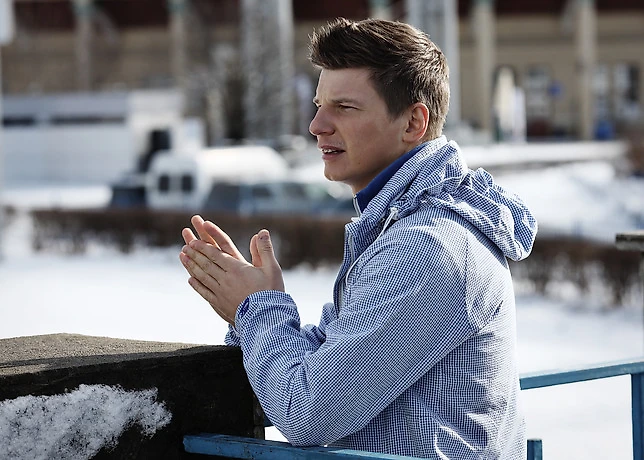
«How would you help that little lad with the plastic bag turn into a great footballer?»
«Ideally all he needs is a good surface to train on and a professional coach.»
«Do the parents have to dream of raising a superstar?»
«Personally, I feel strongly opposed to forcing the kid to do anything against his will. If the child doesn’t have a desire himself, it just won’t work. I have heard of things happening differently in other families, but this is my view.»
«What did you struggle with the most at the start of your career?»
«Nothing. I just wanted to play football and nothing prevented me from doing so.»
«What advice would you give to young footballer?»
«You have to love the game. You have to be true to yourself and to your trade.»
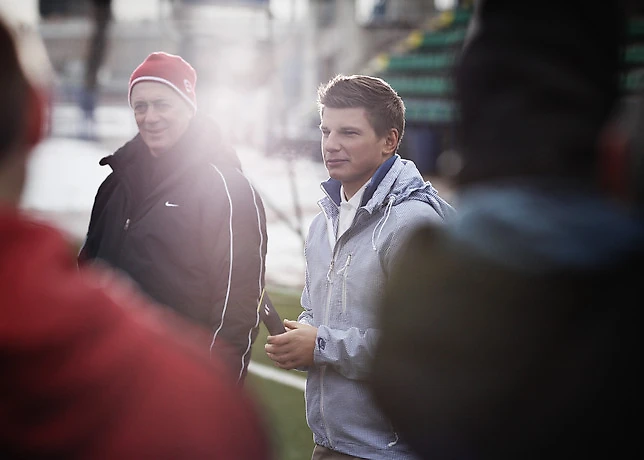
«And what do you do if you stay true, but still fail in your efforts?»
«Finish and move on to something else. Or you could keep pushing and working. I’ve been in that situation – I was irritated, got angry at everyone, didn’t want to train. It’s only when I got older I realised that you can achieve things only through hard work and patience.»
«Did your parents suggest you try yourself at something else?»
«I wasn’t really a very pleasant kid, even when things were going my way.»
«Were you ever in a fight?»
«Occasionally. I remember once in Bulgaria there was a proper scrap with the opposing team, wall to wall. The ref ignored the other team’s dirty tricks on the pitch and when one of them fouled me again, I reacted and it all kicked off. I can’t picture something like that happening now. I am a lot more calm these days.»
«Has football ever driven you to tears?»
«Of course, some defeats were too difficult to handle. But I can’t really remember the last time it happened.»
«So now you wouldn’t cry because of football?»
«Perhaps I would, I just haven’t had any matches recently, where a defeat would make me cry, that’s all.»
«Do you still keep in touch with the other lads from «Smena» [the St. Petersburg football academy – Sports.ru]?»
«Yes, my three mates Roma, Zhenya and Fedor. One works in my mums company, the next one is a builder and other is currently in hospital, recovering from a surgery. Our lives went different ways, but I know for sure that these guys aren’t jealous of me. For them I am the same Andrey that they played with at «Smena» – they could take a Mickey out of me, or tell me something brutally honest, when even my teammates wouldn’t, so these guys are there for me.»
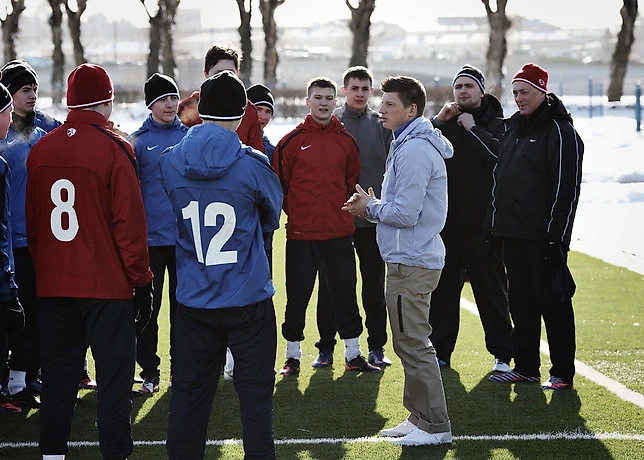
«Can you imagine having a chance to train and grow in one of the top youth academies in the world?»
«When I was a teenager Russian football was falling apart. So it is really hard to imagine having something like the Nike «Chance» programme being introduced in those days. It’s great that things have changed so much now, this programme allows me as a footballer to show young aspiring players that they all have a chance. I was just like them once, a young lad kicking the football around on this very pitch. If I could become a professional, so can they.»
«Do you think they have better opportunities these days than in your time?»
«On the one hand, they watch top players from the world’s best leagues, they have better equipment… But there are obvious problems, such as the poor quality of the pitches. I also have my reservations about the qualifications of the coaches in some regions and cities.»
«How do you fix these things?»
«If you look at it from a global perspective, the country itself needs to change. Football reflects things that happen across the state. If we want to have better qualified coaches, we have to educate them and at the moment the level of education is pretty low. The changes have to cover the economic and technological spheres, as well as the tax system. The football institutions require proper financing and solving these issues isn’t going to be easy.»
«Are you prepared to participate in this development project?»
«I find it interesting. I believe that only people who know football from within should be responsible for it’s development. Could I improve things? Unfortunately, in our country the impact you can make in a given sphere depends largely on the powers you are granted by those above you. If they are willing to give me the freedom and resources to fix the problems in our football, then I would. But I don’t want to just take up a position for the sake of it.»
«Did you have any idols as a kid?»
«No.»
«Do you think you could be for the Zenit youngsters what Thierry Henry was for the Arsenal juniors?»
«No, I couldn’t even imagine it.»
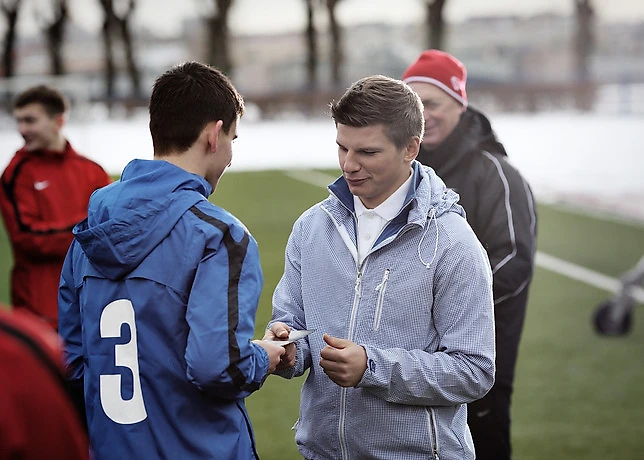
«Yury Zhirkov said he was bored in London. It doesn’t seem like you are familiar with that particular problem…»
«In fact, it did take me a while to adapt to the city, and I still feel that London is not as comfortable to live in as it may appear. It’s great for visiting, but not so much if you live there.»
«What stood out for you during your stay in the English capital?»
«First of all, the three large parks in the centre of the city. Secondly, it’s vibrancy, things are happening there every day. Lastly, it’s the Russians – a lot of the ones I met there probably wouldn’t really hang out with me here in Russia.»
«Why not?»
«That’s what our mentality is like.»
«What’s the craziest story that happened to you there?»
«It didn’t, thank God. I tried to stay out of trouble, avoided the paparazzi, so there isn’t much to tell. I was a good boy in London.»
«And on the pitch?»
«Once, during a charity shoot for Nike in the AIDS campaign, Drogba and myself were supposed to tie each other’s shoelaces. And later, when our teams met, Drogba offered me his hand and I responded by offering my foot. We had a laugh about it.»
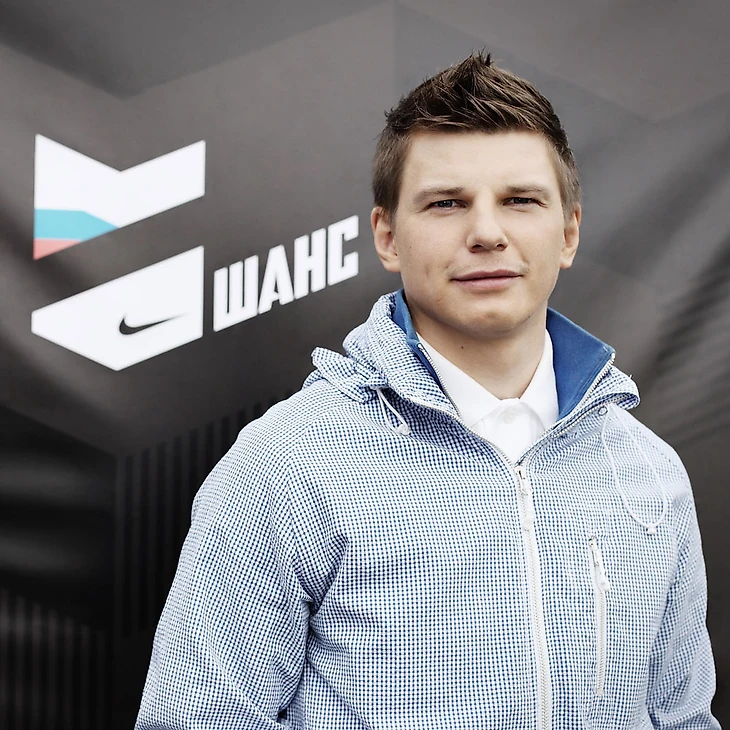
«Who is the oddest person you met at Arsenal?»
«Out kitmen were a father and a son. The dad was also the coach of the Arsenal ladies team – a kind of «Wenger for girls». He even led them to a Champions League victory.»
«Dmitry Sychev [Spartak Moscow striker, formerly of Marseille – Sports.ru] once complained that he actually had to run away from the fans in France. Did the English fans get so angry, too?»
«No, I can’t imagine something like that happening in England. The Arsenal fans were always very kind to me, but I heard similar things about the Marseille fans from Samir Nasri. Losing can be dangerous there – best not to go out the day after a defeat.»
«Three main characteristics of an Arsenal fan are…»
«Benevolence, gratefulness and amazing singing, especially during the away matches.»
